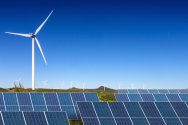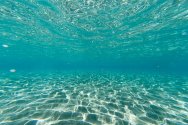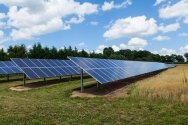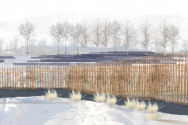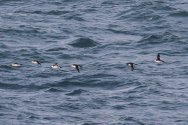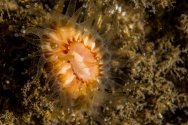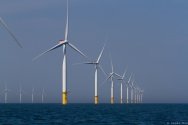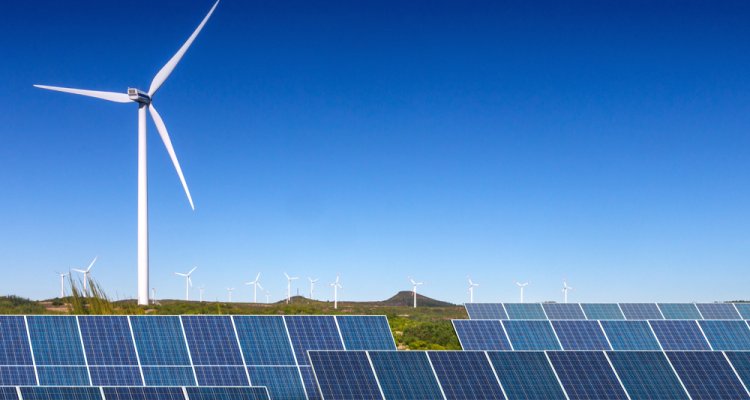
Dossier
Climate, nature and energy
In 2030, 70% of Dutch energy must be renewable, as agreed in the Climate Agreement. That is why investments in wind and solar energy on land and at sea are substantial. Wageningen University & Research is investigating the opportunities for integrating wind turbines and solar panels into the landscape in a nature-friendly manner. We are also looking at the impact of (the extraction of) both renewable and fossil fuels on the ecosystem and how ecological effects can be mitigated.
Solar energy
To achieve the objectives of the Climate Agreement, the Dutch government is investing heavily in solar energy, among other things. This is reflected in a large increase in solar parks, in particular on agricultural land, often aimed at maximising energy yield. To do this in a sustainable and nature-inclusive way, Wageningen University & Research has developed the Solar Research Programme.
Wind energy
The large-scale development of offshore wind farms in the North Sea has far-reaching consequences for both nature and spatial planning, and therefore for all North Sea users. There are still many knowledge gaps for the government, wind energy sector, nature conservation organisations and the fishing and aquaculture sectors.
Researchers from Wageningen University & Research are also developing knowledge and techniques for minimising effects on nature in onshore wind turbines. This protects foraging areas of vulnerable birds and bats, and prevents economic damage for wind energy suppliers.
Offshore oil and gas
Offshore oil and gas extraction: what effect does it have on the nature of coast & sea? And what to do with discarded oil and gas platforms? Wageningen University & Research investigates ecological effects, but also opportunities for new nature around oil and gas platforms at sea.
News
Projects
Publications
-
Exploring tomato phenotypic variability under combined nitrogen and water deficit
Plant and Soil (2024), Volume: 496, Issue: 1-2 - ISSN 0032-079X - p. 123-138. -
Do students have anything to say? Student participation in a whole school approach to sustainability
Environmental Education Research (2024), Volume: 30, Issue: 4 - ISSN 1350-4622 - p. 519-543. -
The new green apartheid? Race, capital and logics of enclosure in South Africa’s wildlife economy
Environment and Planning E: Nature and Space (2024), Volume: 7, Issue: 1 - ISSN 2514-8486 - p. 123-140. -
Soil amendment with insect frass and exuviae affects rhizosphere bacterial community, shoot growth and carbon/nitrogen ratio of a brassicaceous plant
Plant and Soil (2024), Volume: 495, Issue: 1-2 - ISSN 0032-079X - p. 631-648. -
The effect of Maillard reaction on flavour development of protein hydrolysates from cheese
Food Chemistry (2024), Volume: 437 - ISSN 0308-8146 -
Polymer and alcohol‐based three‐phase partitioning systems for separation of polysaccharide and protein
Journal of Chemical Technology and Biotechnology (2024), Volume: 99, Issue: 1 - ISSN 0268-2575 - p. 259-269. -
Effect of far-red and blue light on rooting in medicinal cannabis cuttings and related changes in endogenous auxin and carbohydrates
Scientia Horticulturae (2024), Volume: 325 - ISSN 0304-4238 -
A rockling's choice: The trade-off between thermal preference and physical structure in the five bearded rockling, Ciliata mustela
Journal of Experimental Marine Biology and Ecology (2024), Volume: 570 - ISSN 0022-0981 -
Plural valuation in southwestern Ethiopia: Disaggregating values associated with ecosystems in a smallholder landscape
People and Nature (2024), Volume: 6, Issue: 1 - ISSN 2575-8314 - p. 91-106. -
Housing refugees from Ukraine : preliminary insights and learnings from the local response in five European cities
Urban Research and Practice (2024), Volume: 17, Issue: 1 - ISSN 1753-5069 - p. 139-145.
